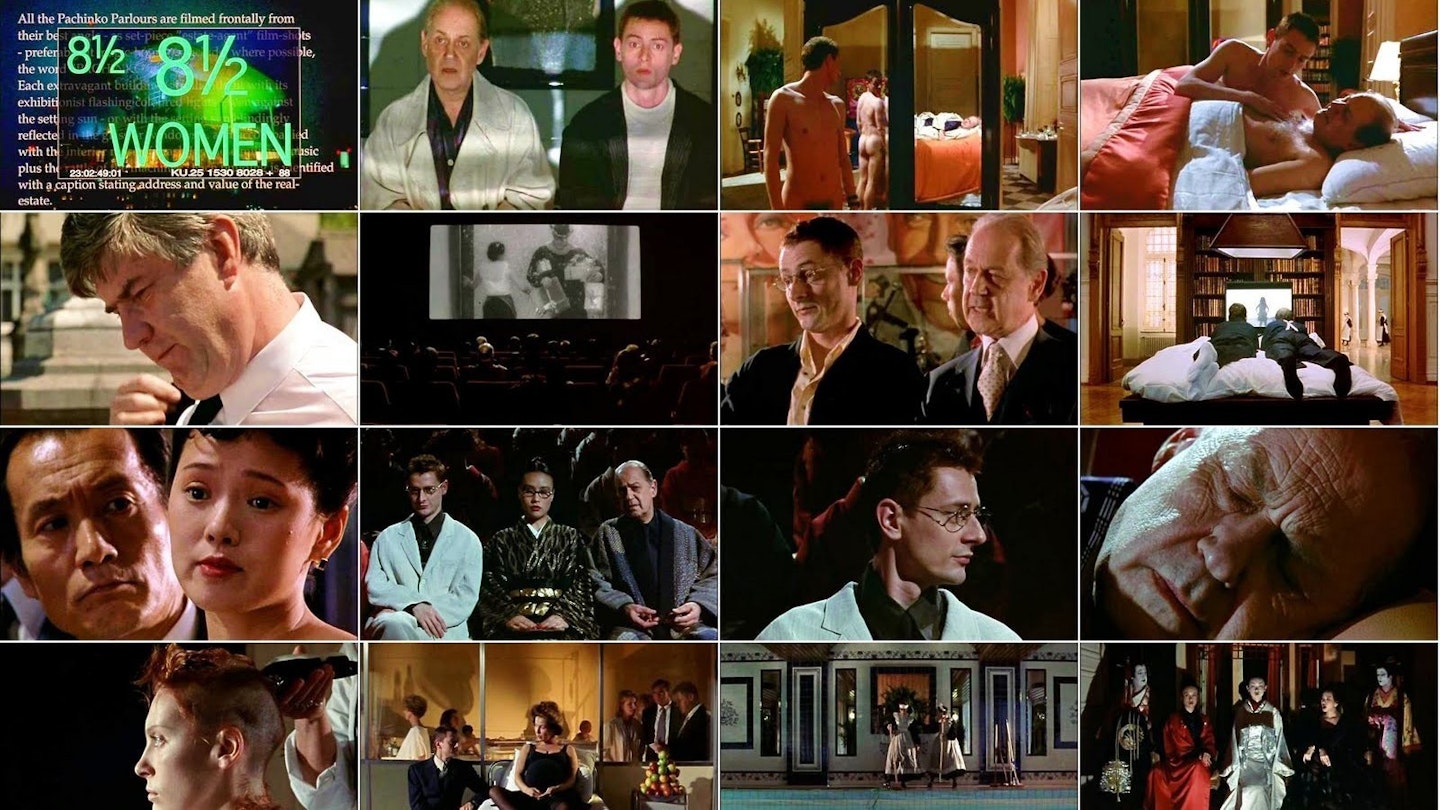Audiences at Cannes are notorious for their volatility. Yet, few receptions in the festival's history have been as hostile as that accorded Peter Greenaway's self-regarding tribute to Federico Fellini, when it debuted there in May 1999. Impassioned charges of misogyny were hurled at both director and picture and a cause celebre was born.
Yet, apart from an excess of female flesh, this dismally unfunny comedy seems nowhere near as contentious as, say, The Baby Of Macon. Indeed, if anything, the film dwells more on the emotional immaturity and physical limitations of the supposedly stronger sex than on woman as either object or idyll.
So enslaved are a widowed business tycoon and his son (Standing and Delamere) to traditional notions of womanhood, that in turning their Swiss mansion into a palace of pleasure, they select only such stereotypes as the earth mother, the tart with a heart, the devoted servant, the virgin and the she-male.
Greenaway's point is that these caricatures of male fantasy have been celebrated in art and literature from time immemorial. But instead of exploring them or man's need for them, he decides to show off his knowledge of cultural history by paying homage to everything from Byzantium to Madame Butterfly.
This approach is not only disappointing in the stiltedness it lends to an already awkwardly-acted piece, but also in the fact that it retreats from the experimental advances of The Pillow Book, where Greenaway attempted to atone for the failings of a century of cinema by fully exploiting the visual potential of the movie screen. All the things that once made Greenaway great (the smug intellectualising, the marionette-like performances and the suffocating design) are in evidence. But the inspiration, for now, seems to have deserted him.
